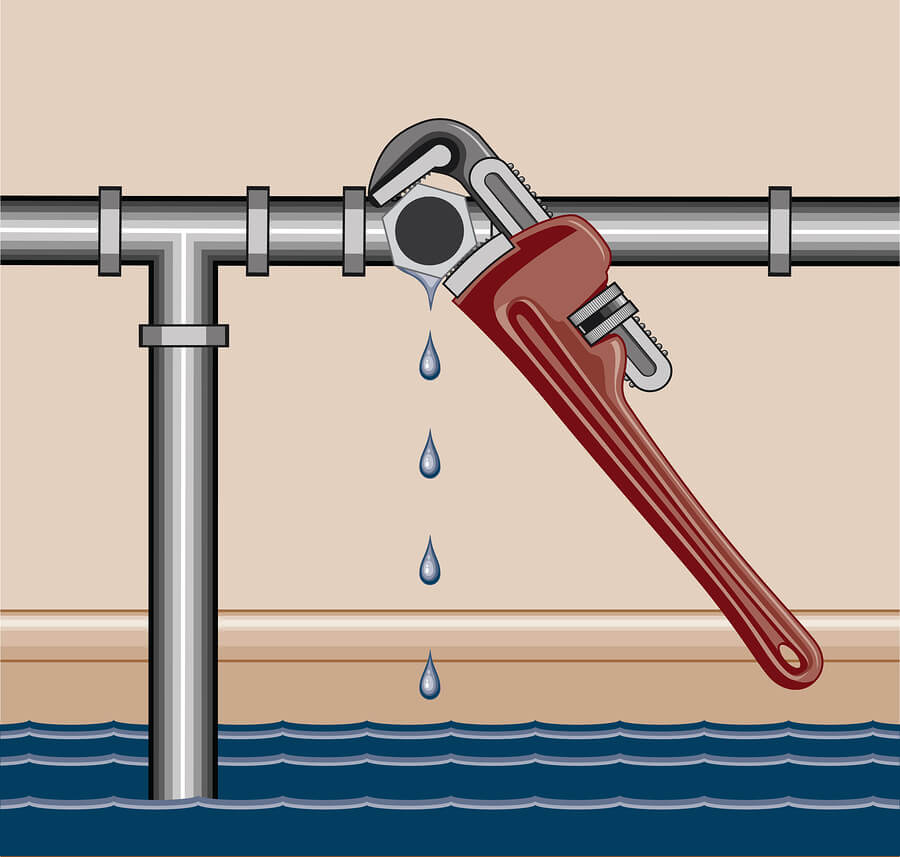6 Most Common Origins of Water Leaks in Your Home: A Guide
6 Most Common Origins of Water Leaks in Your Home: A Guide
Blog Article
The publisher is making several great points related to How to detect water leaks in your home in general in this post down below.

Leakages not only cause waste of water but can also create unnecessary damages to your house and also promote unwanted natural growth. By understanding and also looking for everyday circumstances that cause leaks, you can safeguard your house from future leaks and also unneeded damages.
Instantaneous temperature changes.
Severe temperature adjustments in our pipes can create them to increase as well as get unexpectedly. This development and contraction may trigger fractures in the pipes, especially if the temperature level are below freezing. If you maintained an eye on just how your plumbing works, it would be best. The visibility of the formerly discussed situations regularly indicates a high danger.
Corroded water systems
As time goes by, your plumbing system ages as well as deterioration such as rust may begin eating away the pipes. This may be the source of discoloration or warping on your pipes. This asks for an inspection with your plumber right away. Think about changing the pipes considering that they are at a higher threat of rust than the newer models if our plumbing system is old.
Malfunctioning Pipeline Joints
Pipe joints can deteriorate over time, resulting in water leaks. If you have loud pipelines that make ticking or banging sounds, particularly when the hot water is turned on, your pipe joints are most likely under a great deal of pressure.
Trespassing origins
A lot of water leaks start outside your house as opposed to inside it. If you see an abrupt reduction in water pressure, state in your tap, require time to go out and examine your backyard. You might discover wet patches or sinkholes in your backyard, which could imply that tree origins are getting into water lines triggering water to leak out. You can have your plumber look for invasion, particularly if you have trees or bushes near your residential or commercial property.
Poor Water Connectors
At times, a leakage can be triggered by loose hoses and also pipes that provide your devices. Most of the time, moving is what triggers the loose water Connections. You could discover when it comes to a washing equipment, a hose pipe might spring a leakage due to shaking throughout the spin cycle. In case of a water links leakage, you might notice water running straight from the supply line or puddles around your appliances.
Clogged Drains
Blocked drains pipes may be bothersome and inconveniencing, but they can in some cases wind up creating an overflow causing break pipes. Maintain removing any materials that might drop your drains that might clog them to stay clear of such inconveniences.
All the above are causes of leakages however not all water leaks result from plumbing leakages; some leakages might originate from roofing system leaks. All leakages should be fixed instantly to avoid water damages.
Leaks not just trigger waste of water but can additionally trigger unneeded damage to your house and promote undesirable natural growth. By looking as well as understanding for daily scenarios that create leaks, you can safeguard your residence from future leaks and unneeded damage. Today, we will look at 6 leak causes that might be causing your pipes to leak.
At times, a leak can be caused by loose hose pipes as well as pipelines that provide your devices. In situation of a water connections leakage, you might see water running straight from the supply line or puddles around your devices.
How To Check For Water Leak In Your Home
How To Check for Leaks
The average household's leaks can account for nearly 10,000 gallons of water wasted every year and ten percent of homes have leaks that waste 90 gallons or more per day. Common types of leaks found in the home are worn toilet flappers, dripping faucets, and other leaking valves. These types of leaks are often easy to fix, requiring only a few tools and hardware that can pay for themselves in water savings. Fixing easily corrected household water leaks can save homeowners about 10 percent on their water bills.
To check for leaks in your home, you first need to determine whether you're wasting water and then identify the source of the leak. Here are some tips for finding leaks:
Take a look at your water usage during a colder month, such as January or February. If a family of four exceeds 12,000 gallons per month, there are serious leaks.
Check your water meter before and after a two-hour period when no water is being used. If the meter changes at all, you probably have a leak.
Identify toilet leaks by placing a drop of food coloring in the toilet tank. If any color shows up in the bowl after 10 minutes, you have a leak. (Be sure to flush immediately after the experiment to avoid staining the tank.)
Examine faucet gaskets and pipe fittings for any water on the outside of the pipe to check for surface leaks.
Undetected water leaks can happen without the home or business owner even realizing. If you suspect a water leak, but not able to find the source. It is time to contact a professional water leak detection service, The Leak Doctor.
How To Find a Water Leak In Your Home
https://www.leakdoctor.com/blog/How-To-Check-For-Water-Leak-In-Your-Home_AE197.html

We were shown that report about Most Common Causes of Leaky Pipes from a friend on another website. Sharing is good. You won't know, you may just be helping someone out. We thank you for reading our article about Top Causes of Home Water Leaks.
Call Today Report this page